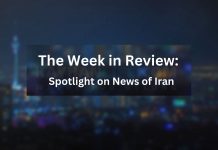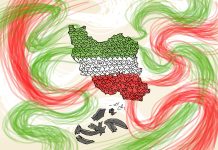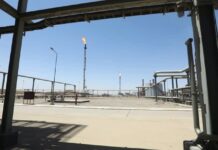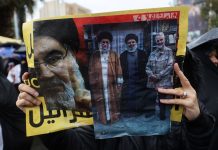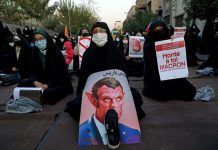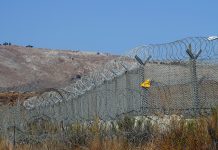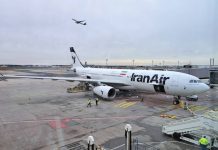By Gram Slattery
WASHINGTON, Jan 20 (Reuters) – Republican President-elect Donald Trump says he plans to acquire Greenland, bring the war in Ukraine to a close and fundamentally alter the U.S. relationship with NATO during his second four-year term.
In recent weeks, he has also threatened to seize the Panama Canal and slap Canada and Mexico with 25% tariffs if they do not clamp down on the flow of drugs and migrants into the United States.Here is a look at the foreign policy proposals Trump has pledged to advance once he takes office on Monday:
NATO, UKRAINE AND EUROPEAN ALLIES
Trump has said that under his presidency, the United States will fundamentally rethink “NATO’s purpose and NATO’s mission.”
He has pledged to ask Europe to reimburse the United States for “almost $200 billion” in munitions sent to Ukraine, and he has not committed to sending further aid to the Eastern European nation.
Trump cut defense funding to NATO during the latter part of his first term, and he has frequently complained that the United States was paying more than its fair share. In recent weeks, he has said NATO members should be spending 5% of gross domestic product on defense, a figure well above the current 2% target.
On the war in Ukraine, Trump said during the 2024 election campaign that he would resolve the conflict even before his inauguration. But since his election, he has not repeated that pledge and advisers now concede it will take months to reach any peace agreement.
Trump has indicated that Kyiv may have to cede some territory to reach a peace agreement, a position backed by his key advisers.
While there is no fully fleshed-out Trump peace plan, most of his key aides favor taking NATO membership off the table for Ukraine as part of any peace agreement, at least for the foreseeable future. They also broadly support freezing the battle lines at their prevailing location.
While Trump signaled in early April that he would be open to sending additional aid to Ukraine in the form of a loan, he remained mostly silent on the issue during contentious congressional negotiations over a $61 billion aid package later that month.
TERRITORIAL EXPANSION
In mid-December, Trump said he planned to acquire Greenland, an idea he briefly floated during his 2017-2021 term. His previous efforts were foiled when Denmark said its overseas territory was not for sale.
But Trump’s designs on the world’s largest island have not abated. During a January press conference, Trump refused to rule out invading Greenland, portraying the island as crucial for U.S. national security interests.
Trump has also threatened to seize the Panama Canal in recent weeks, blaming Panama for overcharging vessels that transit the key shipping route.
Trump has also mused about turning Canada into a U.S. state, though advisers have privately portrayed his comments regarding the United States’ northern neighbor as an example of trolling, rather than a true geopolitical ambition.
CHINA, TRADE AND TAIWAN
Trump frequently threatens to impose major new tariffs or trade restrictions on China, as well as on many close allies.
His proposed Trump Reciprocal Trade Act would give him broad discretion to ramp up retaliatory tariffs on countries when they are determined to have put up trade barriers of their own. He has floated the idea of a 10% universal tariff, which could disrupt international markets, and at least a 60% tariff on China.
Trump has called for an end to China’s most favored nation status, a designation that generally lowers trade barriers between nations. He has vowed to enact “aggressive new restrictions on Chinese ownership of any vital infrastructure in the United States,” and the official Republican Party platform calls for banning Chinese ownership of American real estate.
On Taiwan, Trump has declared that it should pay the United States for its defense as, he says, it does not give the U.S. anything and took “about 100% of our chip business,” referring to semiconductors. He has repeatedly said that China would never dare to invade Taiwan during his presidency.
MEXICO, CANADA AND NARCOTICS
Trump has said he would slap Mexico and Canada with broad 25% tariffs if they do not stem the flow of drugs and migrants into the United States.
Mexican and Canadian leaders have sought to prove they are serious about taking on illegal immigration and the narcotics trade, though Trump’s actual Day One plans for tariffs on the country’s neighbors are unclear.
Trump has said he would designate drug cartels operating in Mexico as foreign terrorist organizations and order the Pentagon “to make appropriate use of special forces” to attack cartel leadership and infrastructure, an action that would be unlikely to obtain the blessing of the Mexican government.
He has said he would deploy the U.S. Navy to enforce a blockade against the cartels and would invoke the Alien Enemies Act to deport drug dealers and gang members in the United States.
Civil rights groups and Democratic Party senators have pushed for the repeal of that act, passed in 1798, which gives the president some authority to deport foreign nationals while the country is at war.
The Republican Party platform also calls for moving thousands of troops deployed overseas to the U.S.-Mexico border to battle illegal immigration.
CONFLICT IN ISRAEL
Trump’s Middle East envoy-designate, Steve Witkoff, worked closely alongside officials in the administration of Democratic President Joe Biden to hash out the peace deal announced earlier in January between Israel and Palestinian militant group Hamas. Sources close to the talks said he applied significant pressure on both sides to strike an accord quickly, though the precise details of his involvement are still coming out in the press.
After first criticizing Israeli leadership in the days after its citizens were attacked by Hamas on Oct. 7, 2023, Trump later said the militant group must be “crushed.”
Trump had said there would be “hell to pay” if Israel and Hamas did not reach a ceasefire deal resulting in the return of hostages held by the Palestinian militant group in Gaza before he takes office.
IRAN
Trump’s advisers have indicated they will renew the so-called maximum pressure campaign of his first term against Iran.
The maximum pressure campaign sought to use vigorous sanctions to strangle Iran’s economy and force the country to negotiate a deal that would hobble its nuclear and ballistic weapons programs.
The Biden administration did not materially loosen the sanctions that Trump put in place, but there is debate about how vigorously the sanctions were enforced.
CLIMATE
Trump has repeatedly pledged to pull out of the Paris Agreement, an international accord meant to limit greenhouse gas emissions. He pulled out of it during his term in office, but the U.S. rejoined the accord under Biden in 2021.
MISSILE DEFENSE
Trump has pledged to build a state-of-the-art missile defense “force field” around the U.S. He has not gone into detail, beyond saying that the Space Force, a military branch that his first administration created, would play a leading role in the process.
In the Republican Party platform, the force field is referred to as an “Iron Dome,” reminiscent of Israel’s missile defense system, which shares the same name.
(Reporting by Gram Slattery in Washington; Additional reporting by Susan Heavey in Washington; Editing by Ross Colvin, Howard Goller, Deepa Babington and Matthew Lewis)

